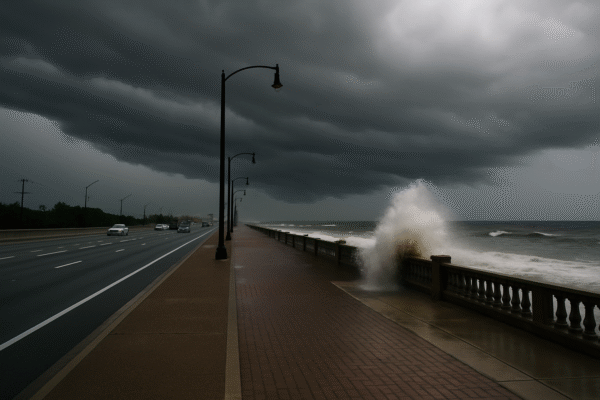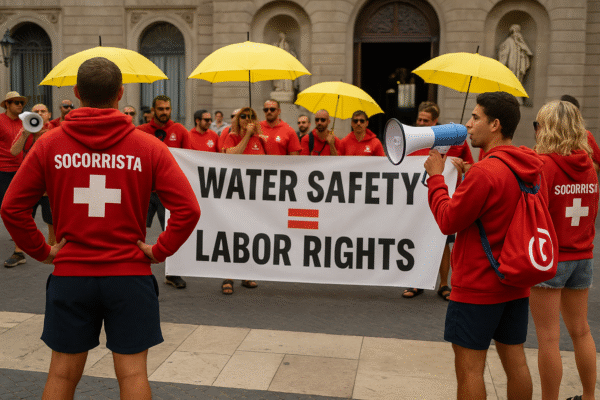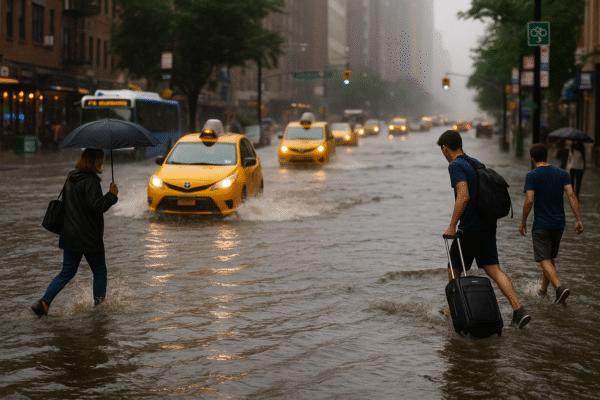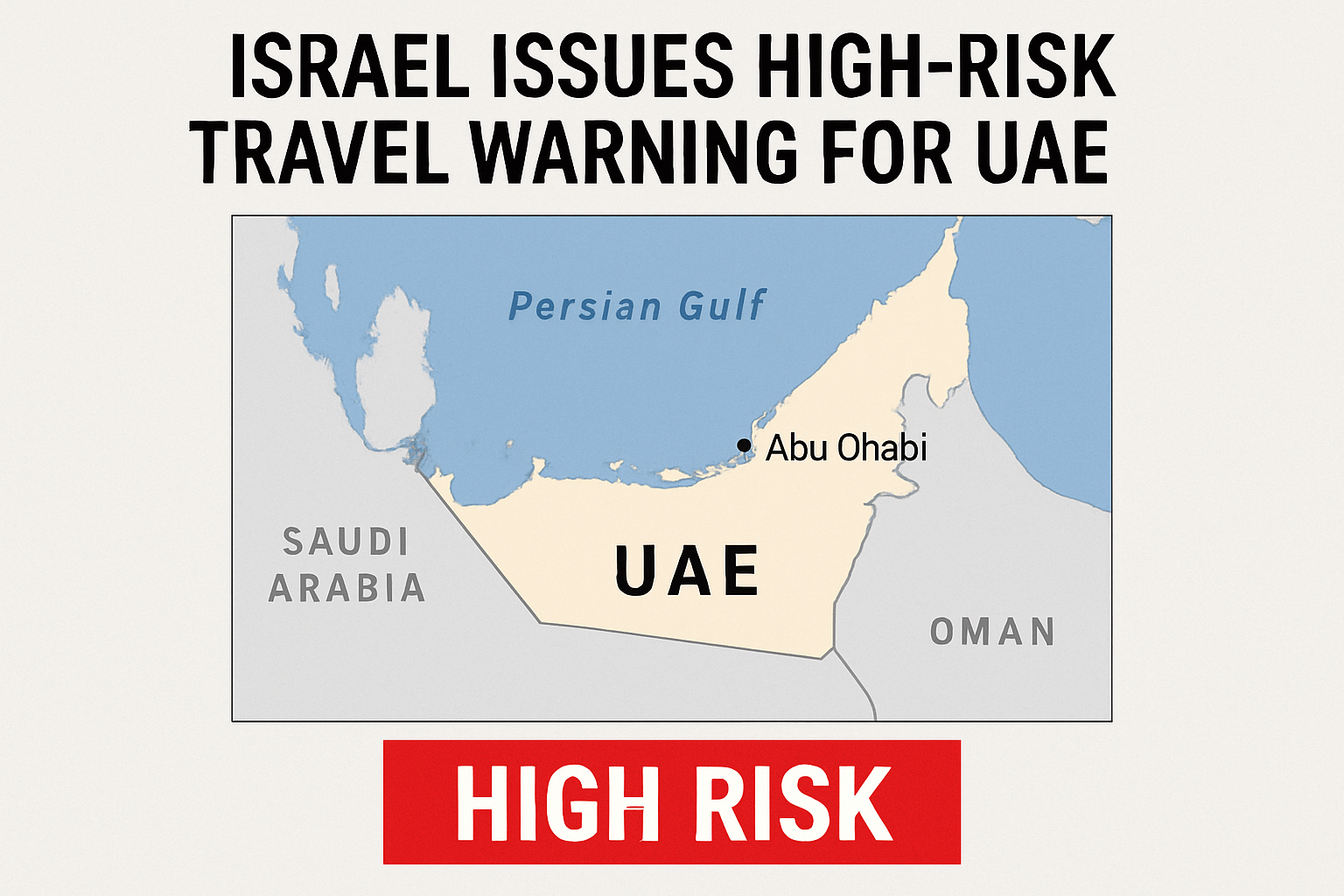Barcelona, June 18, 2025 –
Tourism in Spain is under scrutiny as widespread anti-tourism protests erupt across major cities, leaving tourists caught in the crossfire of a rising movement demanding sustainable travel and fairer living conditions for locals. Demonstrations began in early June 2025 and reached a fever pitch by mid-month, particularly in Barcelona and Palma de Mallorca, where protestors have targeted visitors with slogans such as “Tourism is Terrorism” and “Tourists Go Home.”
Organized by local activist groups fed up with the economic and social strain of mass tourism, the protests have disrupted daily life, particularly in popular neighborhoods overwhelmed by short-term rentals, overcrowded city centers, and rising housing costs.
Protest Flashpoints: Tourists Confronted in Barcelona and Palma
The most intense protests occurred between June 16–17, when activists surrounded luxury hotels and restaurants in Palma’s city center, including the upscale Cappuccino Borne, interrupting evening service and chanting slogans like “As You Come, I Have To Go.” Similar scenes unfolded in Barcelona’s Gothic Quarter, a district often overwhelmed by seasonal tourists.
Protesters used symbolic tactics—such as water gun sprays, smoke flares, and performance art—to criticize gentrification and the lack of affordable housing. Some demonstrators emphasized that the message was not against tourists personally but rather the systemic over-dependence on tourism.
Political Response and Economic Warnings
The protests have sparked concern from Balearic Islands officials and tourism authorities across Spain. Antoni Costa, Vice President of the Balearic Government, condemned the protests, stating:
“Tourism is a cornerstone of our economy. While we recognize the social challenges, resorting to aggressive protests damages our reputation globally.”
Costa emphasized that tourism accounts for over 45% of the Balearic Islands’ GDP, employing nearly 200,000 people. Similar sentiments were echoed by national tourism authorities, who fear that anti-tourism demonstrations could derail efforts to stabilize the post-pandemic tourism recovery.
Root Causes: Gentrification, Housing Costs, and Overtourism
The underlying frustrations behind the protests stem from years of rising rental prices, housing shortages, and urban congestion, driven largely by platforms like Airbnb and increased international tourism.
In cities like Barcelona, Madrid, and Palma, locals have been increasingly priced out of their neighborhoods. Apartment owners prioritize short-term tourist rentals over long-term residents, drastically reducing available housing stock and inflating rents.
This transformation of local areas into tourist-centric zones has led to overcrowded public spaces, noise pollution, and cultural commodification, leaving many residents feeling displaced in their own cities.
Impact on Tourism Industry: A Reputational Risk for Spain
Spain’s tourism industry—one of the largest in the world—now faces a reputational challenge. With over 80 million international visitors annually, the country has long been a favorite among European and global tourists. However, the recent unrest may shift perceptions and cause potential travelers to consider alternative destinations.
Tourism experts warn of a possible decline in visitor numbers, especially from markets where travelers are increasingly aware of ethical and sustainable tourism concerns.
Financial Fallout: Airlines, Hotels, and Travel Firms Brace for Losses
The protests have led to last-minute booking cancellations, reduced occupancy in city-center hotels, and a sharp dip in restaurant revenues in affected areas. Tour operators report growing unease among travelers considering Spain for their summer holidays.
Regional airlines serving the Balearic Islands and Catalonia are also preparing for a potential downturn. Analysts estimate that if the protest movement continues through peak season, millions of euros could be lost in direct and indirect revenue.
Travel Advisory: What Tourists Should Know
Tourists currently in Spain or planning travel are advised to:
- Monitor local news and updates from their embassies.
- Avoid protest areas in central Barcelona, Palma, and Madrid.
- Consider travel insurance that covers political unrest and disruption.
- Explore less-crowded alternatives, such as Valencia, Northern Spain, or rural Andalusia, which offer authentic experiences with fewer crowds.
Long-Term Outlook: Path Toward Sustainable Tourism
Spain now faces a critical juncture in balancing tourism growth with local wellbeing. To prevent further deterioration of the tourism experience and resident relations, government and municipal bodies may consider:
- Caps on tourist numbers in oversaturated cities.
- Stricter regulation of short-term rentals.
- Promotion of off-season travel and regional tourism.
- Investment in affordable housing and urban infrastructure.
Cities like Amsterdam, Venice, and Dubrovnik have implemented such measures, and Spanish cities may soon follow suit.
Global Implications: A Shift in Travel Priorities
Spain’s unrest is not isolated. Across Europe and Asia, similar anti-tourism sentiments are emerging in cities under pressure from mass tourism. The “slow travel” and eco-tourism movements are gaining traction, with travelers choosing destinations that align with values of sustainability, cultural preservation, and community respect.
For global tourism brands, airlines, and hospitality groups, the message is clear: adapt or risk alienating both residents and travelers.
Conclusion: Rethinking Tourism in a Changing World
The anti-tourism protests in Spain are a loud signal that the status quo is no longer acceptable for many local communities. While tourism remains vital to Spain’s economy, its long-term survival depends on a more inclusive, responsible, and balanced approach.
Both travelers and industry stakeholders must now engage in a conversation about what tourism should look like in the future—not just for the visitors, but for the people who call these destinations home.
For more travel news like this, keep reading Global Travel Wire



















